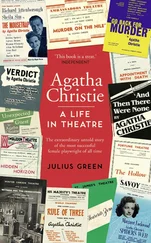Alice Green - Town Life in the Fifteenth Century, Volume 1
Здесь есть возможность читать онлайн «Alice Green - Town Life in the Fifteenth Century, Volume 1» — ознакомительный отрывок электронной книги совершенно бесплатно, а после прочтения отрывка купить полную версию. В некоторых случаях можно слушать аудио, скачать через торрент в формате fb2 и присутствует краткое содержание. Жанр: literature_19, foreign_antique, foreign_prose, Историческая проза, на английском языке. Описание произведения, (предисловие) а так же отзывы посетителей доступны на портале библиотеки ЛибКат.
- Название:Town Life in the Fifteenth Century, Volume 1
- Автор:
- Жанр:
- Год:неизвестен
- ISBN:нет данных
- Рейтинг книги:3 / 5. Голосов: 1
-
Избранное:Добавить в избранное
- Отзывы:
-
Ваша оценка:
- 60
- 1
- 2
- 3
- 4
- 5
Town Life in the Fifteenth Century, Volume 1: краткое содержание, описание и аннотация
Предлагаем к чтению аннотацию, описание, краткое содержание или предисловие (зависит от того, что написал сам автор книги «Town Life in the Fifteenth Century, Volume 1»). Если вы не нашли необходимую информацию о книге — напишите в комментариях, мы постараемся отыскать её.
Town Life in the Fifteenth Century, Volume 1 — читать онлайн ознакомительный отрывок
Ниже представлен текст книги, разбитый по страницам. Система сохранения места последней прочитанной страницы, позволяет с удобством читать онлайн бесплатно книгу «Town Life in the Fifteenth Century, Volume 1», без необходимости каждый раз заново искать на чём Вы остановились. Поставьте закладку, и сможете в любой момент перейти на страницу, на которой закончили чтение.
Интервал:
Закладка:
Stubbs Const. Hist. iii. 484-488. Hallam Const. Hist. iii. 36. Gneist, who gives different figures, considers that one of the greatest dangers of the fourteenth and fifteenth centuries was the irrational and meaningless increase of town representation. (Constitution Communale, tr. by Hippert, i. 333, 338; ii. 9.)
6
Rep. of Com. on Mun. Corp., 1835, 20, 21; 29-34; Papers relating to Parl. Representation, 93, 94. Vol. ix. No. 92. ii.; 31 x.
7
See Paston Letters, i. 160-1, 337, 339-40; ii. 78, 28, 31, 35-36; iii. 52-3. Richard the Redeless, passus iv. The great people occasionally exercised influence in towns; Hist. MSS. Com. v. 497; ix. 138. For various modes of voting in towns see Lynn, Hist. MSS. Com. xi. 3, 146-151; Chichester, Gross. Gild Merchant, ii. 48; Reading, Coates, 459; Sandwich, Boys, 402; Exeter, Freeman, 152; Worcester, Eng. Guilds, 373, 393; Bristol, Hunt, 86; Cinque Ports, Boy’s Sandwich, 774, 796.
8
The first mention of burgesses in the Empire is in 1066 at Huy, in the bishopric of Liege. Pirenne, Dinant, 18.
9
Dr. Gross gives a list of 150 towns which had gained the right of having a merchant gild – most of them in the twelfth and thirteenth centuries.
10
Edward the First in the thirty years of his rule created fifty-four new boroughs. In the first eighty years of the fifteenth century the kings only issued nine charters of this kind.
11
London was not apparently before other cities in the winning of liberties. (Round, Geoffrey de Mandeville, 372.) There were reasons enough for especial caution of Henry the Second in the matter of London.
12
Gross, Gild Merchant, i. 73, note; Archæologia, vii. p. 337-347; Stubbs, ii. 486.
13
Burgage rents in the earliest times were accounted for by the officers not in a lump sum but “as the pennies come in.” Rep. on Markets, 13.
14
Cutt’s Colchester, 111-117, 126-7.
15
Two other innkeepers had much the same stock-in-trade.
16
Hist. MSS. Com. vi. part i. 491-2, 478, 489. In Reading at the muster roll of 1311 there appeared eight men armed with sword, bow, arrows, and knife; thirty-three with bows, arrows, and knives; and over two hundred and thirty-five (besides some names lost at the foot of the roll) with hatchets and knives. In 1371 the town was able to raise a body of archers for service abroad; and under Edward the Sixth it sent fifty soldiers armed with bills, swords, daggers, bows, and arrows, and paid each soldier forty pence “for the King’s affairs into Boulogne.” Hist. MSS. Com. xi. 7, 171, 182.
17
Ibid. v. 497.
18
Act of Parliament for paving Gloucester, 1455; Fosbrooke’s Gloucestershire, i. 157. For Exeter in 1466; Freeman’s Exeter, 91. For Canterbury in 1474, because the “evil report” carried away by pilgrims “would be stopped if the roads were properly pitched with boulders and Folkestone stone”; Hist. MSS. Com. ix. 168, 144, 174. For Southampton in 1477, after a century of vain attempts to pave the streets; Davies, 119, 120; in 1384 a tax was levied for pavage; in 1441 accounts were rendered of paving stones provided; payments were made in 1457 to a London paviour. By the Act each citizen was ordered to pave before his own door as far as the middle of the street since “the town was full feebly paved and full perilous and jeopardous to ride or go therein, and in especial in the High Street,” so that “strangers thither resorting have been oftentimes greatly hurt and in peril of their lives.” For Bristol in 1491 when the whole town seems to have been new paved. Ricart, 47-48.
19
To take a single instance, in 1421 the water-supply of Southampton was undertaken by the council, and new leaden pipes provided by the grant of a burgess who had thus bequeathed his money “for the good of his soul.” An aqueduct was made at considerable expense in 1428; 261 days’ work at it was paid at from 4 d. to 6 d. a day; over £12 more was spent on an iron grating for it, and 27 s. 2 d. given to the plumber who fixed it; great stones from Wathe called “scaplyd stonys” were carried, with loads of chalk, quicklime, pitch, rosin, solder, wax, and wood. In 1490 a new well was made with a “watering-place for horse and a washing-place for women.” Davies, 115, 117; Hist. MSS. Com. xi. 3, 138-40. In many towns wells were repaired, enclosed with a wall and covered with a roof and put under the care of wardens.
20
Hist. MSS. Com. ix. 137, 145. See Paston, i. 434; Hist. MSS. Com. xi. 7, 169; x. 4, 529-30.
21
English Guilds, 241, 249.
22
For the contrast in this respect between the shire and the borough see Round’s Geoffrey de Mandeville, 356-7.
23
Luchaire, Communes Françaises, 22-25. See Piers Ploughman, passus i. 139-146; ii. 90-99; ix. 19-76; x. 223-227.
24
Piers Ploughman, passus xvi. 248-255.
25
“The Jews that were gentlemen, Jesus they despised,
Both his lore and his law, now are they low churls,
As wide as the world is woneth (dwelleth) there none
But under tribute and tallage as tikes and churls.
And those that become Christian by counsel of the Baptist
Are franklins and free…
And gentlemen with Jesus.”
(Piers Ploughman, ed. by W. Skeat for Early English Text Society, part iii.; pass. xxii. 34.) I have ventured to give quotations from mediæval writers in modern spelling, as I am here concerned neither with philology nor the history of literature: and there are many to whom the old methods of spelling only serve to obscure the sense.
26
Stubbs, ii. 137-144, 239-244.
27
Ibid. ii. 560, 671.
28
Stubbs, ii. 332-4.
29
Ibid. ii. 257; iii. 16.
30
The former devices for illegal taxation on the King’s part broke down when the commons looked so sharply after these matters that no attempt at unauthorised taxation of merchandise was made after the accession of Richard the Second. Stubbs, ii. 574-578. How completely the relation of King and commons had been reasoned out by the people we see in Langland’s writings.
“Then came there a King, and ‘by his crown,’ said,
‘I am a king with crown the commons to rule,
And holy Church and clergy from cursed men to defend.
And if me lacketh to live by, the law wills that I take
There I may have it hastelokest; (quickest) for I am head of law,
And ye be both members, and I above all.’
···········
‘On condition,’ quoth conscience, ‘that thou conne defend
And rule thy realm in reason right well, and in truth;
Then, that thou have thine asking as the law asketh;
Omnia sunt tua ad defendendum, sed non ad deprehendendum .’”
(Piers Ploughman, passus xxii. 467-472, 478-481.)31
Stubbs, iii. 77; Rogers, Agric. and Prices, iv. viii.
32
See the description of a session of Parliament in Richard the Redeless, passus iii. A.D. 1399.
33
Piers Ploughman, passus iv. 376, &c.
34
Ibid. passus v. 176.
Читать дальшеИнтервал:
Закладка:
Похожие книги на «Town Life in the Fifteenth Century, Volume 1»
Представляем Вашему вниманию похожие книги на «Town Life in the Fifteenth Century, Volume 1» списком для выбора. Мы отобрали схожую по названию и смыслу литературу в надежде предоставить читателям больше вариантов отыскать новые, интересные, ещё непрочитанные произведения.
Обсуждение, отзывы о книге «Town Life in the Fifteenth Century, Volume 1» и просто собственные мнения читателей. Оставьте ваши комментарии, напишите, что Вы думаете о произведении, его смысле или главных героях. Укажите что конкретно понравилось, а что нет, и почему Вы так считаете.












